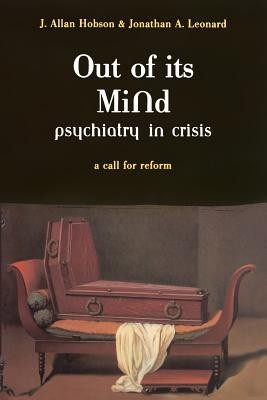
- We will send in 10–14 business days.
- Author: J Allan Hobson
- Publisher: Basic Books
- ISBN-10: 0738206857
- ISBN-13: 9780738206851
- Format: 15.9 x 22.7 x 1.9 cm, minkšti viršeliai
- Language: English
- SAVE -10% with code: EXTRA
Reviews
Description
Should psychiatrists treat the mind or the brain? Battles about this have plagued psychiatry at least since the end of the nineteenth century, when Sigmund Freud rejected science in favor of psychoanalysis. But now, 100 years later, we find the pendulum has swung the other way-toward over-dependence on psychoactive drugs and depersonalized psychiatry. In this important book, Harvard psychiatrist J. Allan Hobson and science journalist Jonathan Leonard explore the roots of this trend and propose the development of a more balanced humanistic psychiatry that-while remaining wary of pill-pushing-embraces rather than shuns neuroscience. For as Hobson and Leonard demonstrate, neuroscience has revolutionized our understanding of the mind, has shed a bright light on mental ills, and now stands ready to bridge the gap between biomedicine and psychotherapy. This is a vital step, they assert, if we are to revive today's flagging over-drugged psychiatry, provide sound care for millions of the neglected mentally ill, and realize humanity's ancient dream of treating not just the mind or brain alone, but both together.
EXTRA 10 % discount with code: EXTRA
The promotion ends in 21d.02:34:43
The discount code is valid when purchasing from 10 €. Discounts do not stack.
- Author: J Allan Hobson
- Publisher: Basic Books
- ISBN-10: 0738206857
- ISBN-13: 9780738206851
- Format: 15.9 x 22.7 x 1.9 cm, minkšti viršeliai
- Language: English English
Should psychiatrists treat the mind or the brain? Battles about this have plagued psychiatry at least since the end of the nineteenth century, when Sigmund Freud rejected science in favor of psychoanalysis. But now, 100 years later, we find the pendulum has swung the other way-toward over-dependence on psychoactive drugs and depersonalized psychiatry. In this important book, Harvard psychiatrist J. Allan Hobson and science journalist Jonathan Leonard explore the roots of this trend and propose the development of a more balanced humanistic psychiatry that-while remaining wary of pill-pushing-embraces rather than shuns neuroscience. For as Hobson and Leonard demonstrate, neuroscience has revolutionized our understanding of the mind, has shed a bright light on mental ills, and now stands ready to bridge the gap between biomedicine and psychotherapy. This is a vital step, they assert, if we are to revive today's flagging over-drugged psychiatry, provide sound care for millions of the neglected mentally ill, and realize humanity's ancient dream of treating not just the mind or brain alone, but both together.


Reviews